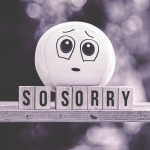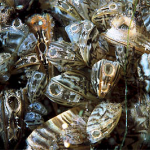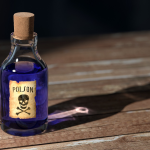Remember Frances Kelsey? Jonas Salk? Everett Koop? They inspired us – they invigorated trust. Who leads the public health march now? And why don’t they inspire us?
Harm Reduction
Not-so-recent data from the National Firearms Survey garnered headlines when it showed that the number of individuals carrying a handgun in public places doubled between 2015 and 2018. And that was before the Supreme Court's decision on New York’s carry law.
When someone does something inexplicable and out of the blue, my husband’s mantra is to ask qui bono. Who benefits? So why would Emily Oster, an economist without public health or legal training, propose a forgiveness program for COVID disinformation? Why propose not only doing a reset but creating an amnesty program for something that may be a legal wrongdoing?
The discharge of ballast water used to balance a ship is a real man-bites-dog story. This is an issue where environmental groups, public health organizations, businesses, trade associations, tribes, and states sing from the same hymnal, yet the EPA refuses to implement meaningful regulations. What is the EPA drinking? It always wants to regulate, even when it shouldn’t.
I’ve been thinking about Elon Musk’s social platform, Twitter, a lot lately. I wondered how one might keep the public square and identify the village idiots more readily. A new study in Nature’s Human Behavior looks at how knowing the identity of a writer alters our perceptions.
Many news events are associated with upticks in gun violence. But underneath those national aggregates, we find a great deal of variation, as seen in this study from the journal Chaos. It's not that gun violence isn't increasing overall, but more that in some areas shootings rise while in others they fall.
Policies developed by public health officials in early 2020, in response to the COVID pandemic, were kept in place much longer than needed. Maintaining these policies was at odds with previous pandemic experiences, and they eventually led to disaster. Here we briefly explore some of the evidence to support our position.
Every time you turn on the TV or read a news article touching on medicine, the environment, or health, chances are you'll run across a story that's impacted by toxicology. And more times than not, news consumers are left with the question: What information is essential to understanding the story's impact?
This philosophy has deep religious and cultural roots, from monsters and meditation to Marie Kondo’s tidying up. This article by Dr. Kevin Taylor, Director of Religious Studies and Instructor of Philosophy, University of Memphis is re-posted here courtesy of The Conversation.
Our lives today have become politicized by many issues, including vaccination. Research shows that Republicans largely ally with the anti-vax stance, following the example of their national leader, while Democrats lined up to take the jab. Does it matter whether you resist vaccination because of “the (false) science” or “the politics?” The answer is yes. Let’s focus on the politically averse, 60% of the anti-vax population.
Mandating vaccination isn’t the greatest governmental policy. Catherine the Great knew that back in 1768 – more than two hundred and fifty years ago. Maybe politicians should look to history for ideas on what works when influencing population behavior. Perhaps they should also eschew involving themselves in scientific matters where they are ignorant.
Sepsis is an overwhelming infection: bacterial, viral, or fungal. It requires immediate medical attention and intervention. EPIC, the company with the largest share of the electronic medical records market, developed an algorithm to help physicians timely identify at-risk patients. An independent study shows that it is not helpful. Is this healthcare’s 737Max moment?











